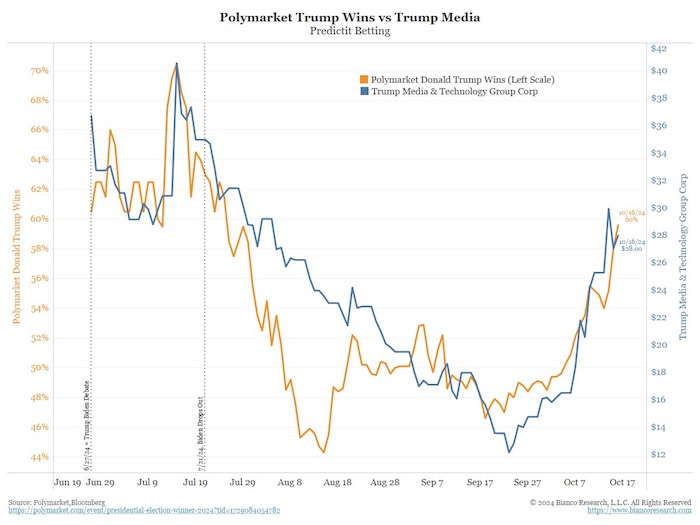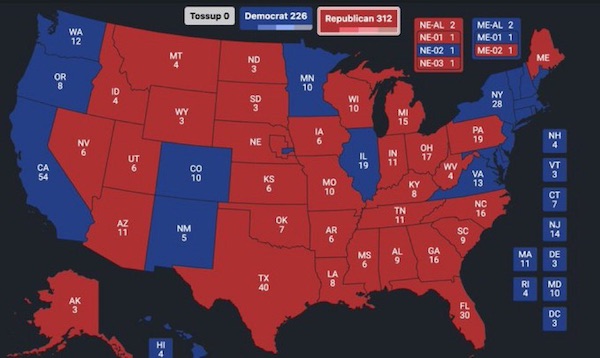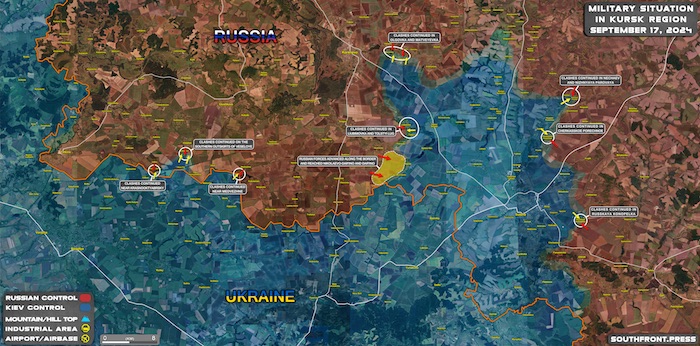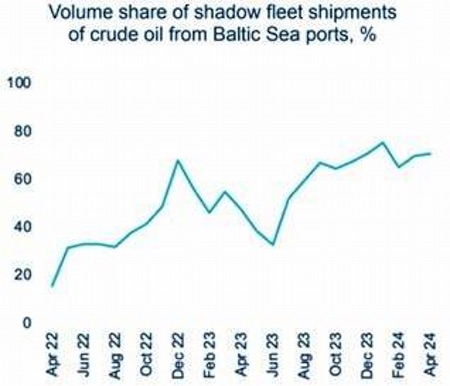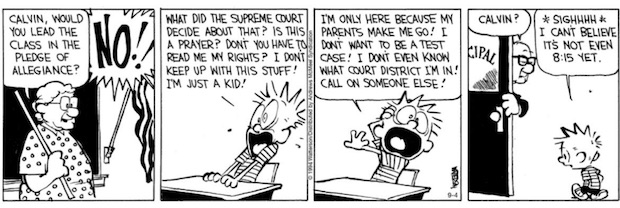
René Magritte The endearing truth 1966

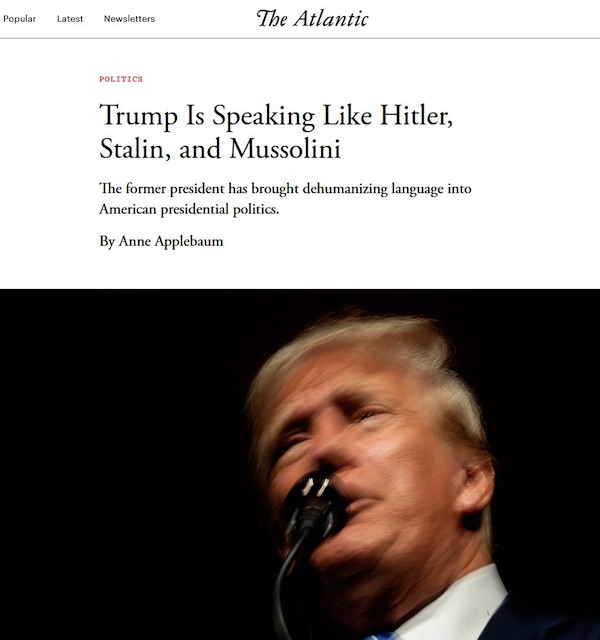

Tyrus
If you watch nothing else about Donald Trump’s campaign season and you were on the fence or you know somebody on the fence. Send them the interview that @realDonaldTrump did with Tyrus.
This is the side of Donald Trump that the media will never ever show you. pic.twitter.com/qswV7QuPY7
— Insurrection Barbie (@DefiyantlyFree) October 18, 2024
Did you know that back in 1990, President Trump chartered a private plane to get Nelson Mandela to America when the US Government wouldn’t help? He doesn’t go around bragging about his good deeds, but there are endless such stories. pic.twitter.com/OID1HGxLwS
— Charlie Kirk (@charliekirk11) October 18, 2024
College degree
Kamala Harris just told voters in Michigan that she'll remove college degree requirements for federal jobs, but maybe she forgot that on June 26th, 2020, President Trump signed an Executive Order DOING EXACTLY THAT.
She's now stealing things Trump has already done.
Good thing… pic.twitter.com/4RKFHYRoxa
— George (@BehizyTweets) October 18, 2024
Moonshot
Former CDC Director Dr. Redfield compares the #MAHA movement with JFK’s Moonshot. Dr. Redfield tells @ChrisCuomo: I believe that making America healthy again is possible, and Kennedy’s passion for this issue combined with a commitment from President Trump is a huge opportunity.… pic.twitter.com/wvY3K8MiYF
— Robert F. Kennedy Jr (@RobertKennedyJr) October 19, 2024
Old man
This is awful and a national security issue. And Kamala Harris is letting it happen. pic.twitter.com/F7u9Y4wEUU
— Tom Fitton (@TomFitton) October 19, 2024
Seal
https://twitter.com/i/status/1847392365977227537
Californicated
https://twitter.com/i/status/1847427727630180417
RFK
We didn't leave the Democratic Party. They left us. @ElonMusk @TulsiGabbard pic.twitter.com/OQ95d7Gnqr
— Robert F. Kennedy Jr (@RobertKennedyJr) October 19, 2024

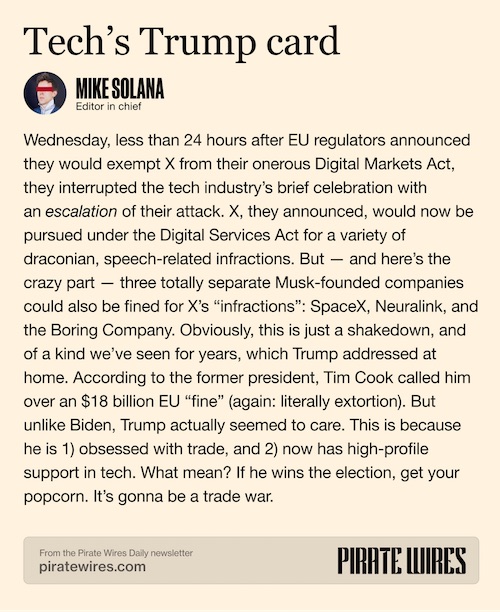

Elon EU
Elon Musk says he won't be going to the UK because they might just throw him into jail over his posts.
Europe does not have freedom of speech, and in the UK, they're taking criminals out of jail so they can put people in there for mean social media posts. pic.twitter.com/UqmLOePKY7
— Ian Miles Cheong (@stillgray) October 19, 2024
Elon Covid
BBC: "You changed the Covid misinformation labels… Why do that?"
Musk: "Does the BBC hold itself at all responsible for misinformation regarding masking, and side effects of vaccinations?"
BBC: "Let's talk about something else."
Musk: "You weren't expecting that."
BBC:… pic.twitter.com/5UDXuOMTYi
— Wide Awake Media (@wideawake_media) October 18, 2024
?!
https://twitter.com/i/status/1847403452126687462
Garland
https://twitter.com/i/status/1847645637417771209
Elon sharks
Elon Musk tonight on overregulation:
"I got a bunch of nutty stories. SpaceX had to do this study to see if Starship would hit a shark. And I'm like… it's a big ocean. There are a lot of sharks! It’s not impossible, but it’s very unlikely. So we said, 'Fine, we’ll do the… pic.twitter.com/Ytbqg374vI
— Sawyer Merritt (@SawyerMerritt) October 20, 2024

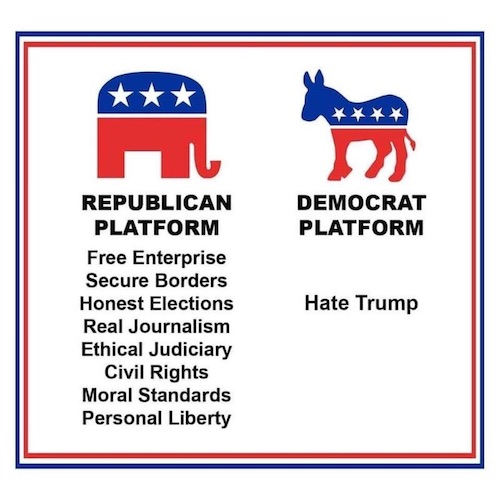


Smells like desperation?! “Politico ran a headline on Friday reading “An ‘exhausted’ Trump says no to another interview”..”
• Media Still Tries To Suggest Trump Is ‘Exhausted’ (JTN)
Former President Donald Trump is beating back rumors and reports of exhaustion in the final stretch of his reelection campaign with a rigorous schedule of in-person rallies and interviews that has far outpaced his much younger Democratic opponent. Politico ran a headline on Friday reading “An ‘exhausted’ Trump says no to another interview”. The article pointed to Trump’s backing out of an interview with The Shade Room and cited anonymous “people familiar with the conversations” in reporting that a “Trump advisor” had said Trump was “exhausted” and “refusing [some] interviews.” The story further pointed to Trump’s cancellation of other interviews this week, including with CNBC’s “Squawk Box,” which the campaign attributed to a scheduling conflict. A Trump campaign official confirmed to Just the News that it never set or discussed a date to appear on The Shade Room and that it also had a scheduling conflict that precluded a separate NBC appearance.
Three times as many interviews
Concerns over age and ability to handle the rigors of office proved fatal to the political career of President Joe Biden, 81, whose performance in a debate against Trump this year reignited scrutiny over his age and mental competence and ultimately pushed him to step aside. At 78, Trump has also faced some questions over his age and mental acuity, albeit not to a comparable extent. Last month, Axios ran an article highlighting that Trump had held fewer rallies per month compared to his 2016 cycle. One of the contributing factors, the outlet asserted, was that “he’s older.” The Trump campaign adamantly denies such claims. “This is unequivocally false,” Trump Campaign National Press Secretary Karoline Leavitt told Just the News of the Politico article. “President Trump has been running laps around Kamala Harris on the campaign trail and has sat down for nearly three times as many interviews as she has, including a contentious interview with Bloomberg this past week which Kamala declined. President Trump has more energy, and a harder work ethic, than anyone in politics.” Indeed, there is plenty in Trump’s active campaign schedule to contrast with that of Vice President Harris, 59.Rally frequency
Since becoming the Republican Party nominee in mid-July, Trump has held at least 41 conventional rallies — one in which he narrowly missed being felled by an assassin’s bullet — across every battleground state, including multiple weeks in which he has headlined two or more events. That figure includes joint appearances such as his rallies with Turning Point, but does not include media hits. Harris, by contrast, became the Democratic nominee in early August and has since held at least 14 conventional rallies. Trump held five rallies between his confirmation as the GOP candidate and Harris’s ascent to the top of the Democratic ticket. To compare the same period, Trump has held at least 36 rallies to Harris’s 16 since she became the Democratic nominee. Both figures include weekend appearances by either candidate. Trump held rallies in Detroit, Mich.; and Latrobe and Lancaster, Pa.; while Harris appeared in Detroit, Mich.; and Atlanta, Ga.83 interviews as opposed to 44
Apart from standard rallies, both campaigns have of course made numerous appearances on legacy media, as well as podcasts, video platforms, and in other media. A Wall Street Journal breakdown of their respective appearances, moreover, showed Trump again outpacing Harris in virtually all mediums. As of July 15, Trump has made 28 appearances on what the outlet deemed “Legacy TV” compared to Harris’s 12 since Aug. 6. In those intervals, Trump made 10 radio appearances to Harris’s seven. Trump further made 10 print appearances to her two, seven podcast hits to her two, and appeared in an X space. Both made three video appearances. A running tally of interviews from Fox News, moreover, tracks the combined interviews for both the major candidates and their running mates. Since the formation of the Harris-Walz ticket in August, the outlet states, Harris and Gov. Tim Walz, D-Minn., have sat for a combined minimum of 44 non-scripted interviews. Trump and Sen. JD Vance, R-Ohio, meanwhile, have conducted at least 83.Press conferences: Harris not held one yet
Trump has held at least six press conferences since early August in which he fielded media questions, while Harris has not held a single formal news conference in her capacity as a candidate, according to Fox News. Though she has delivered remarks in an official capacity as the vice president, offering updates on hurricane relief efforts and other issues, she has kept questions limited in those instances. Despite her recent “media blitz” in which she appeared on a string of friendly podcasts and programs, some media insiders don’t expect Harris to include a formal press conference before the end of the election cycle. Speaking to Fox News, conservative Radio Libre host Jorge Bonilla said Harris was “highly unlikely” to hold such an event “because the media have enabled and encouraged her ‘plexiglass basement’ strategy.”
Exhausted
Kamala and Trump both had events in Detroit, Michigan over the last 24 hours.
I juxtaposed them in 50x speed.
Tell me again which candidate is “exhausted.” pic.twitter.com/gxjj9Z05ZI
— johnny maga (@_johnnymaga) October 19, 2024

“Elon Musk [..] describing betting markets as “more accurate than polls, as actual money is on the line.”
• Trump’s Polymarket Surge Powered By $30 Million Bet By Just 4 Accounts (ZH)
Few recent developments in the 2024 White House race have been as swift and seemingly prophetical as a huge October swing toward Donald Trump in the crypto-based Polymarket online betting marketplace. From even odds at the start of the month, the odds of a Trump victory have surged to 60%, while the odds of Kamala Harris win have fallen to 40%. Now, the Wall Street Journal is reporting the move is largely the work of just four accounts that have together plowed $30 million into bets on the former president. What’s more, the timing of the four accounts’ moves suggests they could be controlled by a single owner. Polymarket has engaged outside experts to scrutinize transactions in presidential election betting, an unnamed source told the Journal. The four accounts have concentrated on bets that Trump will come out atop the electoral college count, but have also dabbled in side-wagers on individual state contests, as well as taking some flyers on Trump winning the popular vote.
That’s a long shot indeed, as Polymarket currently gives Trump only a 32% chance of doing that. “There’s strong reason to believe they are the same entity,” Arkham Intelligence CEO Miguel Morel tells the Journal: The accounts betting big on Trump—Fredi9999, Theo4, PrincessCaro and Michie—were all funded by deposits from Kraken, a U.S.-based crypto exchange, according to Arkham. They behave in a similar fashion, systematically placing frequent bets on Trump and stepping up the size of their bets at the same time, Arkham found. The oldest of the accounts was created in June, while the newest was created this month. In its report, the Journal worked to substantiate the notion that the concentrated bets represent some form of intentional narrative-control scheme, saying “[Trump’s] surge might be a mirage manufactured by a group of four Polymarket accounts,” a view embraced by crypto investor Adam Cochran, a self-described right-of-center Harris-backer.
To its credit, however, the Journal also tapped Rutgers University stats professor Harry Crane, who noted that other betting markets also have Trump in the lead, and that big bettors routinely nudge all manner of market odds. “Purchasing a large number of shares on one outcome does not require any ulterior motive or effort to manipulate the market,” he said. Americans are officially barred from Polymarket, and a source “familiar with the matter” has assured Reuters that the four accounts behind the $30 million wave of bets are not owned by an American, a conclusion that rests on the firm’s practice of certifying large traders to verify they aren’t using VPNs to hide their origins.
As the Polymarket surge began in early October, Trump-backer Elon Musk publicized Trump’s then-3% lead in the odds, describing betting markets as “more accurate than polls, as actual money is on the line.” In addition to the 60% chance of a Trump victory, Polymarket now has the GOP with an 81% chance of taking over the Senate, but gives Democrats a 51% chance of controlling the House of Representatives.
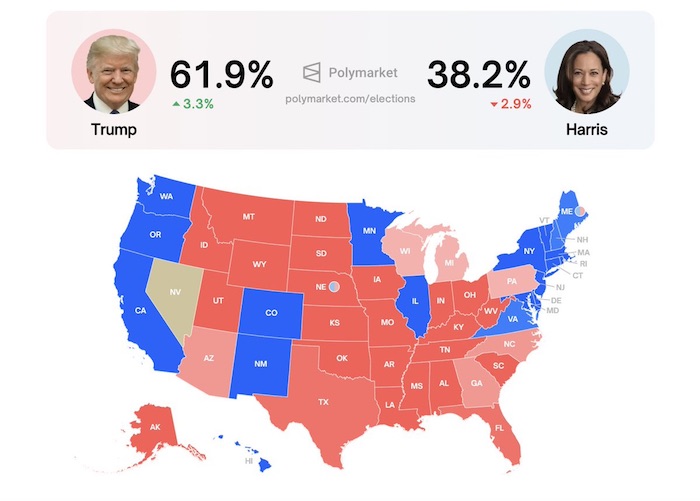
The highest it got, on Oct. 18

“..an opponent of Trump could probably copy “War and Peace” word-for-word and would still be showered with literary awards..”
• Is Kamala Harris a Plagiarist? (Turley)
Kamala Harris this week faced accusations of plagiarism over multiple sections of her book, “Smart on Crime: A Career Prosecutor’s Plan to Make Us Safer.” This is not the first such accusation, Harris was accused of lifting a story from Martin Luther King. In 1965, King described “a moment in Birmingham when a white policeman accosted a little Negro girl, seven or eight years old, who was walking in a demonstration with her mother.” King recounted how the policeman asked the little girl “‘What do you want?’ and the little girl looked at him straight in the eye and answered, ‘Fee-dom’.” Harris would later tell the story of how her mother asked her “Kamala, what’s wrong? What do you want?” and I wailed back, “Fweedom.”
As found by various media outlets, the new allegations from her book would qualify as plagiarism despite the denial of the campaign. It is doubtful it will matter to many voters in the hardened political silos of this election. However, it could prompt a long-needed discussion about how we handle plagiarism in academia. “I wrote my own book, unlike Kamala Harris, who copied hers from Wikipedia.” That criticism, from vice presidential candidate Sen. JD Vance, was only the latest salvo in what has become known as the “the Plagiarism War.” Like virtually every aspect of our lives, plagiarism has become politics by another means. It is hardly new. President Joe Biden admitted to plagiarism long ago. The seriousness of the allegation often depends on how sympathetic the media is toward the author.
Vice President Kamala Harris was accused of plagiarizing her 2009 book, “Smart on Crime: A Career Prosecutor’s Plan to Make Us Safer.” Immediately, the New York Times ran a column citing a “plagiarism consultant” named Jonathan Bailey who suggested that, while Harris plagiarized from sources like Wikipedia, it was nothing to “make a big deal of it.” Bailey took to social media Monday to confirm he had not done a full analysis of the book and that his “quotes were based on information provided to me by the reporters and spoke only about those passages.” The response set off conservative media, which argued that the mainstream media would have had a very different response if the allegations were made against Trump’s book “The Art of the Deal.” The fact is, an opponent of Trump could probably copy “War and Peace” word-for-word and would still be showered with literary awards in this political environment.

A ridiculous “report” 4-5 years later.
• House Democrats Say Trump Overcharged Secret Service at His DC Hotel (Sp.)
Donald Trump during his presidency overcharged Secret Service agents to stay at his DC hotel, treating the agency “as an ATM,” a new report by Democrats on the House Oversight Committee alleges. “One source of payments discussed in this report is the U.S. Secret Service, which Donald Trump treated as his own personal government ATM, extracting from it exorbitant rates his hotel imposed while Secret Service agents protected him, his children, and even foreign leaders whose own payments received by Trump violated the Constitution’s Foreign Emoluments Clause,” the report said. According to the Democratic report, Trump’s hotel often did not just charge the Secret Service as much as 300% or more above the authorized federal government rates, but also charged it “far more than hundreds of other patrons, including members of a foreign royal family and a Chinese business interest.”
The report stated that it wants to ensure that taxpayer funds appropriated to the Secret Service are expended to fulfill its protective missions and “not to violate the Constitution by lining the president’s pockets.” The report also focuses on payments made by federal and state officials staying at the hotel, as well as individuals who allegedly sought and often obtained federal jobs in the Trump administration and presidential pardons. The Secret Service has recently been in the spotlight due to failures that led to the attempted assassination of the former president during a rally in Butler, Pennsylvania on July 13. One of the bullets fired by the shooter grazed Trump’s right ear, leaving him wounded. The gunman also killed an audience member at the rally and wounded two others. In a report published on Thursday, an independent panel reviewing the assassination attempt revealed “deep flaws” in the Secret Service. The panel warned that “another Butler can and will happen again” unless the agency is reformed.

“..if one examines Zelensky’s victory plan it’s as if someone somewhere must have promised him a fresh supply of NATO troops..”
• Zelensky’s Only “Victory Plan” Is NATO Boots On The Ground (ZH)
Ukraine’s “victory plan”, presented this week to NATO officials and both candidates (Trump and Harris) for the 2024 US presidential election, has been widely criticized as a non-starter specifically because it does not address the key obstacle facing their ability to stop Russia’s steady strategic advance. That key obstacle is manpower, which Ukraine does not have. The problem is not blatantly admitted, but implied by numerous officials with inside knowledge of the war. US politicians (Democrats and Neocons) have been pressuring Ukraine to lower the conscription age to 18-24 year old men, a move which the nation has tried to avoid. Why? Because the Ukrainians worry that if they do there will be no viable men left to start families and replenish the population after the war is over. That’s not a very optimistic appraisal of the situation on the front lines.
The height of Ukraine’s successful push-back against Russian forces in 2022 just happened to coincide with the height of the foreign mercenary presence in the region, with tens-of-thousands of highly experienced contract soldiers from the US and Europe helping the Ukrainians counter the maneuver warfare tactics of the Russians. However, when the Russian tactics changed to attrition, the mercenary pipeline suddenly slowed to a trickle. The mainstream media suggests that the reason the foreign fighters stopped showing up was because the “romance of the war” was gone. It is more likely that it’s because western soldiers are rarely trained to fight under attrition warfare conditions, making death a far greater possibility. The point is, Ukraine no longer has a pool of foreign fighters to fall back on and their recruitment efforts a bearing little fruit.
Young men are conscripted or in some cases kidnapped by military police, thrown into vans, dropped off at training centers and then dumped on the front lines within a few weeks. Manpower is the key to war, and it’s the one thing Ukraine has not received from NATO governments. But if one examines Zelensky’s victory plan it’s as if someone somewhere must have promised him a fresh supply of NATO troops. In fact, Zelensky’s only plan seems to be immediate NATO membership which would then, under NATO treaty, requires the deployment of NATO troops to Ukraine for mutual defense. In other words, the Ukrainian plan would facilitate WWIII. Key elements of the plan include a formal invitation to join NATO, the lifting by allies of bans on long-range strikes with Western-supplied weapons deep into Russia, a refusal to trade Ukraine’s territories and sovereignty, and the continuation of the incursion into Russia’s western Kursk region.
The Kremlin dismissed the plan with a spokesman saying Kyiv needed to “sober up”. Indeed. Russia is never going to willingly give up their territorial gains in the Donbas, especially when their troop levels are higher than ever and they are taking towns at the fastest pace since the beginning of the war. The refusal to negotiate on territory makes peace impossible and requires a vast surge in troop strength for Kyiv to have any chance of a new offensive. Ukraine is reportedly losing their gains in the Kursk region with rumors of a full retreat now swirling. This claim seems to be supported by Ukraine’s evacuation of civilians from the Sumy region just across the border from Kursk.
Once again, the manpower simply doesn’t exist to make any of Zelensky’s goals possible. The real question is, is Ukraine worth it? According to surveys in the US and Europe the majority of the public says “no.” They will not support troops on the ground in Ukraine, nor do they want to risk WWIII with Russia. Because of this fact, it behooves Zelensky and his NATO backers to set aside any notions of a victory plan and start considering the wisdom of a peace plan.

France wants war.
• France Backs Zelensky’s ‘Victory Plan’ (RT)
France would work to rally Western countries behind Ukrainian leader Vladimir Zelensky’s “victory plan,” French Foreign Minister Jean-Noel Barrot said during his visit to Kiev on Saturday. “A Russian victory would be a consecration for the law of the strongest and would push the international order towards chaos,” Barrot told reporters during a press conference with his Ukrainian counterpart, Andrey Sibiga. “That is why our exchanges must enable us to make progress on President Zelensky’s victory plan, and to rally as many countries as possible around it.” The diplomat reiterated that Paris would “support, again and again, Ukraine’s resistance against Russian aggression.” Barrot said that France was “open” to the idea of inviting Ukraine into NATO. “It is a discussion that we are having today with our NATO partners,” he said.
Zelensky unveiled his five-point plan in a speech to Ukrainian lawmakers this week, which includes demands that were previously rejected by Kiev’s Western backers, such [as] an immediate invitation for Ukraine to join NATO and the lifting of restrictions on the use of foreign longer-range weapons for strikes deep inside Russia. NATO has maintained that it would be impossible to admit Ukraine into the alliance until the conflict is resolved, while US President Joe Biden said on Friday that there was “no consensus” on whether to greenlight the use of ATACMS missiles and other weapons for strikes on Russian territory.
During his trip to Kiev, Barrot also announced that France would deliver the first batch of Mirage 2000 fighter planes in early 2025. The French Air Force is currently training Ukrainian pilots and aircraft technicians. Kiev has long argued that Western jets, such as the Mirage 2000s and the US-made F-16s, would be crucial to reverse the tide on the battlefield as the Russian troops have been steadily gaining ground in the Donbass in recent months.Moscow has repeatedly said that no amount of foreign military aid would stop Russian troops in Ukraine. Russian Foreign Ministry spokeswoman Maria Zakharova described Zelensky’s plan as “a set of incoherent slogans.”

“Zelensky’s ‘victory plan’ is the shortest path to unleashing World War III, so Hungary does not support it.”
• Orban Blasts Zelensky’s “More Than Frightening” Victory Plan (ZH)
Hungarian prime minister Viktor Orbán’s office has issue a strong negative response to Ukrainian Presdient Volodymyr Zelensky’s “victory plan” – which was presented before European Union leaders this week. Zelensky’s plan, if implemented, would be the shortest path to World War III, a statement by the political director of the Hungarian prime minister’s office said. The response further stressed that the EU must be willing to embark on a path of negotiations, de-escalation, and ultimately peace. Orban had posted his initial reaction to the plan on social media on Thursday, which began, “Today President Zelenskyy will present his plan for victory. What he outlined yesterday in the Ukrainian parliament was more than frightening.” It continued, “Zelensky’s ‘victory plan’ is the shortest path to unleashing World War III, so Hungary does not support it.”
And referencing Ursula von der Leyen, he wrote further, “I am one of those who urge the European Union to change its current strategy. The European Union went into this war with a badly organized, badly executed, badly calculated strategy, for which the president of the Commission bears the main responsibility.” “We are losing this war, so the strategy is not working. But this does not mean that we need more war, more dangerous and long-range weapons — it means that we need to change from a war strategy to a peace strategy. We need a cease-fire and peace talks!” he stressed in apparent reference to Europe and the NATO alliance.
Orbán pledged that he will lobby German Chancellor Olaf Scholz and French President Emmanuel Macron to start negotiations with Moscow “on behalf of the entire EU” as soon as possible in order “to find a way out of this situation.” [..] The Hungarian PM has recently made it clear that he doesn’t share the same enthusiasm for Ukraine’s risky Kursk offensive (which started in August) as other European leaders, having expressed the desire for a ceasefire in the southern Russian oblast, and expressing the need to safeguard European energy supplies ahead of winter.

“Kiev’s possible accession to NATO in the current conditions will eliminate the possibilities of a political and diplomatic settlement of the Ukraine conflict..”
• Moscow Warns of Direct NATO-Russia Conflict if Ukraine Joins Alliance (Sp.)
A Russian diplomat expressed hope that there are reasonable politicians in the leadership of the alliance who are aware of the destructive consequences that inviting Ukraine into NATO could bring. Kiev’s possible accession to NATO in the current conditions will eliminate the possibilities of a political and diplomatic settlement of the Ukraine conflict and make the alliance’s direct involvement in military operations against Russia inevitable, Aleksey Polishchuk, the head of the Russian Foreign Ministry’s second department for the Commonwealth of Independent States’ countries, told Sputnik. “We constantly warn about the threat of Ukraine’s NATO accession,” Polishchuk said, when asked to comment on Szijjarto’s statement about the possibility of direct Russia-NATO confrontation.
Ukraine’s potential accession to the alliance “will put an end to the possibilities of a political and diplomatic settlement, making it inevitable that the alliance will engage directly in hostilities against Russia, and lead to an uncontrolled escalation,” the official said. Earlier this week, Hungarian Foreign Minister Peter Szijjarto told RIA Novosti that Ukraine’s accession to NATO would mean a direct confrontation between the alliance and Russia, and lead to World War III.
In early October, NATO’s new Secretary General, Mark Rutte, visited Kiev. He stated that Ukraine will eventually become a full member of the military bloc, and Russia has no veto power on this matter. However, he did not specify any timeline. President Vladimir Putin has pointed out that Ukraine’s potential NATO membership poses a threat to Russia’s security, which was one of the reasons for the start of the special military operation.

“Moscow is looking to achieve “conditions for long-term, sustainable and lasting peace that provide equal security for all participants in this difficult process..”
• Ukraine Peace ‘Must Be Lasting’ – Putin (RT)
Moscow is interested in a lasting peace with Kiev, but not a short-lived truce, Russian President Vladimir Putin has said. Russia’s goal is to ensure its long-term security interests, Putin stressed during a meeting on Friday with the heads of leading BRICS media agencies at the presidential residence in Novo-Ogaryovo outside Moscow. “If we are talking about some kind of peace processes, then these should not be processes related to a ceasefire for a week, two weeks, or a year, so that NATO countries [which support Ukraine] could rearm and stock up on new ammunition,” he said. Moscow is looking to achieve “conditions for long-term, sustainable and lasting peace that provide equal security for all participants in this difficult process,” the Russian leader explained.
Putin stressed that the Russian authorities “respect and understand” the determination of their “friends” in BRICS and elsewhere to see the Ukrainian crisis resolved “as quickly as possible and by peaceful means.” Moscow realizes that the conflict is “an irritating element in international affairs, in European affairs, in the economy, and so on. We, like no one else, are interested in ending it as quickly as possible and, of course, by peaceful means,” he said. Russia is ready to return to talks with Ukraine, but only on the basis of the document drawn up in Istanbul in late March 2022, when the sides last sat at the negotiating table, the head of state insisted. Putin said last month that during the talks in Türkiye, Kiev was willing to declare military neutrality, limit its armed forces, and stop discriminating against ethnic Russians. In return, Moscow would have joined other leading world powers in offering Ukraine security guarantees.
“The document did not come into force only because the Ukrainians were ordered not to do this. The elites in the US and some European countries felt the desire to seek Russia’s strategic defeat,” the Russian president said at the time. On Wednesday, Ukrainian leader Vladimir Zelensky finally made public his so-called ‘victory plan’ for the conflict between Kiev and Moscow, in a speech to the national parliament. According to Zelensky, the scheme does not include negotiations with Russia, but calls on the West “to strengthen Ukraine” in order to reach a diplomatic solution. “This plan can be implemented. It depends on our partners. I emphasize: on partners. It definitely does not depend on Russia,” he claimed. Kremlin spokesman Dmitry Peskov has suggested that Zelensky’s plan is merely a roadmap for continuing the hostilities. Peace can only be achieved if the government in Kiev “sobers up” and acknowledges the roots of the problems that led to the fighting, he insisted.

“..beneficial cooperation between Moscow and Beijing is helped by the fact that they are neighbors and do not need to transport fuel and other goods by water..”
• Russia Has “Unlimited” Energy Resources – Putin (RT)
Russia has an unlimited amount of energy resources, President Vladimir Putin said during a BRICS media gathering on Friday. He noted the importance of commodity exports to China, and described Russia as the most reliable supplier. Putin said mutually beneficial cooperation between Moscow and Beijing is helped by the fact that they are neighbors and do not need to transport fuel and other goods by water. “The entire border is shared, and the energy resources in Russia are simply unlimited,” Putin stated. Chinese representatives are happy to buy Russian energy resources, the president noted, adding that Russia ranks fourth in its share of China’s trade. Russia’s trade with China topped $65 billion in the first half of this year, with levels of natural-resource exports hitting new highs, Vedomosti reported in July, citing Chinese customs data.
Exports of Russian goods to China jumped 4% year-on-year, surging to a record $65.2 billion between January and June of this year, with oil and gas supplies accounting for nearly 90% of shipments, according to the latest figures. During that period, China purchased mineral oil and other petroleum products worth $50 billion, compared to $47 billion in the same period of last year. Russia has the world’s largest natural gas reserves and is the second-largest producer of natural gas. It is the third-largest producer of oil, accounting for over 12% of global production, and its share of the enriched uranium market is estimated at 40%. The country is also among the ten largest producers of nickel, and the world’s third largest producer of titanium.

“The contribution will be repaid using profits generated by Moscow’s frozen assets, the paper reports.”
• US To Pay $20 Billion Into Loan For Ukraine – FT (RT)
The US is set to provide up to $20 billion to Ukraine as part of a G7 loan, which will then be repaid using proceeds generated by the Russian assets immobilized by the West as part of Ukraine-related sanctions, Financial Times has reported, citing sources. Kiev’s backers have been trying to accelerate negotiations over the loan in an effort to secure funding to Ukraine before the end of the year, due to mounting concern that Washington’s aid to the country could be cut off if Donald Trump wins the upcoming US election, FT noted, in an article posted on Friday. The former US president has repeatedly threatened to scale back assistance to Kiev if he were elected. The US and its allies have frozen an estimated $300 billion in assets belonging to the Russian state after the Ukraine conflict broke out in 2022. The bulk of the money, nearly €197 billion ($214 billion) is being held by Brussels-based clearinghouse Euroclear.
The immobilized funds have generated €3.4 billion ($3.7 billion) in interest as of mid-July, according to the depository. Moscow has denounced the freeze as “theft” and said that any seizure of its funds would be against the law and would further undermine global trust in the Western financial system. In June, G7 members agreed to grant Kiev a $50 billion loan to be financed by interest from the frozen Russian assets. The US and the EU were initially expected to provide $20 billion each as Canada, Japan and the UK were set to jointly lend the rest of the massive loan. Later, to reassure allies that the bloc’s sanctions regime on the funds is not lifted, Brussels proposed a three-year extension of the EU’s mandate to freeze Russian assets. EU lawmakers have been renewing their sanctions every six months by unanimous decision, meaning that each vote may bring about a break in restrictions. Hungary opposed the proposal, and announced plans to postpone the decision until the US presidential elections on November 5.
Last week, the EU approved its own contribution of up to €35 billion to the G7 loan, but the bloc would need to contribute less if Washington provided the full $20 billion, Reuters reported last week. The funds, which will be managed by the World Bank, will be used for several purposes, including defense or humanitarian needs. US senior officials, however, told FT that Washington would provide the full agreed $20 billion, even if the EU failed to convince Hungary’s premier Viktor Orban to drop his veto on extending EU sanctions, which had previously been voiced among the US demands. According to two sources cited by the paper, G7 finance ministers will make a statement on the distribution and structure of the loan on the sidelines of the IMF and World Bank meetings on October 25.

“An unnamed US official confirmed the authenticity of the documents to CNN, describing the leak as “deeply concerning.”
• Secret US Intelligence Files On Israel Leaked – CNN (RT)
The US has launched an investigation after its highly classified intelligence reports about Israel’s preparations for possible strikes on Iran were leaked online, CNN reported on Saturday, citing three people familiar with the matter. The apparent security breach occurred amid unprecedented tensions between Israel and Iran as the Jewish state had vowed to respond to a barrage of missiles fired by Tehran in the beginning this month. On Friday, two documents were posted to the anonymous Telegram channel Middle East Spectator, which covers events in the region and is critical of Israel. The first document, apparently prepared by the Pentagon’s National Geospatial-Intelligence Agency, says that the Israel Defense Forces (IDF) had “continued key munitions preparations and covert UAV activity on October 16 almost certainly for a strike on Iran.”
The second document contains a detailed report about a “large-force employment exercise” conducted by the Israeli Air Force on October 15-16. An unnamed US official confirmed the authenticity of the documents to CNN, describing the leak as “deeply concerning.” The official told the network that the ongoing probe is aimed at determining who had access to the top secret files that eventually made their way to social media. The Telegram channel, which published the documents, released a statement on Saturday, claiming that it had received the files from “an anonymous source on Telegram who refused to identify himself.” The channel further claimed that it had “no connection to the original leaker.”
On October 1, Iran fired nearly 200 ballistic missiles at Israel in response to the war in Gaza and the assassinations of top members of pro-Palestinian militant groups Hamas and Hezbollah. According to the IDF, the majority of the projectiles were intercepted. The only direct casualty by the attack was a Palestinian man from the West Bank who was killed by a falling missile fragment. Israel did not specify how and when it would retaliate, with some reports saying that the IDF were planning to strike military targets in Iran, rather than nuclear or oil facilities. Israel would make “final decisions based on our national interest,” Prime Minister Benjamin Netanyahu’s office said on Thursday.

“As much as intelligence can generate strategic benefits for one side, it is the military itself that decides the outcome of a conflict by fighting on the battlefield – where Tel Aviv has so far failed..”
• Assassinations Continue, But Israel Will Not Win The War (SCF)
Israel continues its strategy of carrying out as many targeted killings as possible. After killing Ismail Hanyeh, Tel Aviv managed to eliminate the then “new” Hamas leader Yahya Sinwar during a joint artillery, drone and sniper attack on the city of Rafah. It is possible that Sinwar’s exact location was obtained through Israeli intelligence sources in conversation with the IDF, which shows that Tel Aviv does indeed have an efficient system of control and surveillance. Israel has been known worldwide in recent decades for maintaining an efficient intelligence system and controlling the internal and external activities of its citizens. However, since October 7, 2023, Israeli intelligence has undergone a gradual process of discrediting, mainly due to the fact that it was not efficient in predicting Operation Storm Al Aqsa.
Many analysts began to doubt Israel’s capabilities after these events, while others began to spread conspiracy theories about alleged Israeli deliberate inaction to provoke a war. All of these narratives seem similarly unfounded. On the one hand, they exaggerate Israel’s power, while on the other, they downplay the seriousness of the Zionist regime’s capabilities. Israel does indeed have a very efficient intelligence system, capable of monitoring the internal and external activities of its citizens. However, this system is not infallible and can make serious mistakes – such as the October 7th, which appears to have been the result of Israeli intelligence neglecting Gaza due to the strategic priority of monitoring Iran. The failure of Israeli intelligence resulted in the current war, which has been the greatest historical humiliation for Israel since its founding.
However, the capabilities of Israeli intelligence cannot be diminished. Local agencies have a great capacity to obtain sensitive information and are willing to use any method to assassinate people identified as “legitimate targets.” This is how Israel has managed to kill several Palestinian, Lebanese and possibly Iranian leaders in recent months. Information is obtained from reliable sources, passed to military or intelligence-linked professional assassins, and then ambushes and sabotages are successfully carried out. Having failed militarily, Israel will certainly escalate its actions in the intelligence arena, betting on the tactic of targeted assassinations to try to demobilize the enemy, affecting the morale of the Resistance troops. The main problem with this type of strategy is that it has already proven ineffective several times, especially against cohesive groups united by strong ties of ideology, religion and political agenda – as is precisely the case with Hamas and all the other militias of the Axis of the Resistance.
Sinwar was assassinated because he was the leader of Hamas – and he became the leader of Hamas because Hanyeh was assassinated before him. This line of assassinated leaders is likely to continue, as this is the expected fate of almost all major leaders of the Resistance’s organizations. In the end, a war is not won by intelligence alone. As much as intelligence can generate strategic benefits for one side, it is the military itself that decides the outcome of a conflict by fighting on the battlefield – where Tel Aviv has so far failed. It is possible that more Resistance leaders will die in the future, but that does not change the fact that Israel is unlikely to win this war, with the policy of targeted assassinations being just a way to disguise the military incompetence of the Zionist regime.
Israel is gloating about the killing of Yahya Sinwar, as it adds the Hamas Chief’s name to the list of assassinations targeting leaders of the resistance this year. But while Netanyahu may have bought himself a little time in the short-term, neither Hamas nor Hezbollah is… pic.twitter.com/IdcFZ5ecdn
— Rachel Blevins (@RachBlevins) October 18, 2024

“This isn’t about terrorism at all. It is about frightening those opposing Israel’s genocide in Gaza, and the West’s collusion in it, into silence.”
• Police Escalate Britain’s War on Independent Journalism (Cook)
The U.K. government and police — the British state — made clear Thursday they are waging a war of intimidation against the country’s independent journalists in a desperate attempt to silence them. Ten Metropolitan police officers made a dawn raid on the home of investigative journalist Asa Winstanley and seized his electronic devices under the U.K.’s draconian Terrorism Act. A letter from the Met indicates that the associate editor of The Electronic Intifada is being investigated by the force for “encouraging terrorism.” Winstanley is the latest — and most high profile – independent journalist to be targeted by counter-terrorism police in recent weeks. Earlier, Richard Medhurst was arrested at Heathrow airport on returning to the U.K. Then Sarah Wilkinson was arrested and her home ransacked.
Winstanley has repeatedly embarrassed the British establishment by exposing its covert and deep ties to Israel and its collusion with the Israeli lobby. In his book Weaponising Anti-Semitism: How the Israel Lobby Brought Down Jeremy Corbyn, Winstanley exposed in shocking detail how anti-Semitism was weaponised against the former Labour leader. The book would have made uncomfortable reading for his successor, Sir Keir Starmer, now Britain’s prime minister, because it documents his role in the smear campaign. While in opposition, Starmer’s Labour Party threatened to expel Winstanley as a member – he resigned in protest instead – and have made legal threats against him.
As The Electronic Intifada website notes: “Now that Labour is the UK’s ruling party, it has the potential to use the apparatus of the state against those it views as its own – or Israel’s – political enemies.” There is precisely no reason for police to raid Winstanley’s home or seize his electronic devices. The preposterous accusation of “encouraging terrorism” clearly relates to his online work, which is fully in the public domain. The British state wants to insinuate through the dawn raid and confiscation of his devices that he is somehow harbouring secret or classified information, or in illicit contact with terror groups, and that incriminating evidence will be forthcoming from searches of those devices. It won’t. If there were any real suspicion that Winstanley had such information, the police would have arrested him rather making a public show of a 6 a.m. raid and search they knew beforehand would turn up nothing.
This isn’t about terrorism at all. It is about frightening those opposing Israel’s genocide in Gaza, and the West’s collusion in it, into silence. If the British state is going after someone like Winstanley, you are supposed to conclude, they will surely soon come for me too. Even the name of the “counter-terrorism” raid is performative: “Operation Incessantness.” The message the state wants to send is that it will not rest till it has us all behind bars. Don’t believe this nonsense. The police have nothing on Winstanley. Exposing information about Israel and its genocide, and the British government’s culpability, is not a crime. At least not yet. They want you to think it is, of course. They want you scared and mute. Because every time you go out and protest, you remind the world that the British government, and their bully-boys in blue, are the real criminals – for enabling genocide.

Mongolia.
• The Geoeconomic Drivers of SCO-BRICS Synergy (Pepe Escobar)
One week before the absolutely crucial BRICS summit in Kazan, the Shanghai Cooperation Organization (SCO) held a summit in Islamabad. This convergence is important in more ways than one. The summit in Pakistan involved the Council of the Heads of Government of SCO member-states. Out of it came a joint communique stressing the need to implement decisions taken at the SCO annual summit last July in Astana: that’s where the heads of state actually gathered, including new SCO full member Iran. China, following the rotating SCO chairmanship of close ally Pakistan – now under a dodgy administration fully endorsed by the military goons who keep ultra-popular former Prime Minister Imran Khan in jail – has officially taken over the SCO presidency for 2024 to 2025. And the name of game, predictably, is business.
The motto of the Chinese presidency is – what else – “action”. So Beijing took no time to start promoting further, faster synergy between the Belt and Road Initiative (BRI) and the Eurasia Economic Union (EAEU), whose predominant power is Russia. Cue to the Russia-China strategic partnership fast advancing trans-Eurasia economic corridors. And that brings us to a couple of key connectivity subplots featured prominently at the Islamabad summit. Let’s start with the fascinating Steppe Road – which is a Mongolian idea crystalizing as an upgraded economic corridor. Mongolia is an observer at the SCO, not a full member: reasons for it are quite complex. Still, Russian Prime Minister Mikhail Mishustin raved about the Steppe Road with his SCO interlocutors. The Mongolians came up with the idea of a Taliin Zam (“Steppe Road” in Mongolian) back in 2014, containing no less than “Five Great Passages”: a maze of transport and energy infrastructure to be built with investments totaling at least $50 billion.
These include a 997 km-long transnational expressway linking Russia-China; 1,100 km of electrified railway infrastructure; the expansion of the – already running – Trans-Mongolian Railway from Sukhbaatar in the north to Zamyn-Uud in the south; and Pipelineistan of course, as in new oil and gas pipelines linking Altanbulag in the north to Zamyn-Uud. Mongolian Prime Minister Oyun-Erdene Luvsannamsrai was as enthusiastic as Mishustin, announcing that Mongolia has already finalized 33 Steppe Road projects. These projects happen to neatly align with Russia’s own Trans-Eurasian Corridor – a connectivity maze which includes the Trans-Siberian Railway, the Trans-Manchurian Railway, the Trans-Mongolian Railway and the Baikal Amur Mainline (BAM).
Back in July at the SCO summit, Putin and Mongolian President Ukhnaagiin Khurelsukh spent quite some time discussing the finer strategic points of Eurasian logistics. Then Putin visited Mongolia in early September for the 85th anniversary of the joint Soviet-Mongolian victory over the Japanese at the Khalkhin Gol River. Putin was received as a rock star. All that makes perfect strategic sense. The Russia-Mongolia border is 3,485 km-long. The USSR and the Mongolian People’s Republic established diplomatic relations over a century ago, in 1921. They have been working together on key projects such as the Trans-Mongolian gas pipeline – yet another Russia-China connection; modernization of the Ulaanbaatar Railway joint venture; Russia supplying fuel to the new Chinggis Khaan International Airport; and Rosatom building a nuclear power plant.
Mongolia harbors the proverbial wealth of natural resources, from rare earth minerals (reserves may reach an astonishing 31 million tons) to uranium (prospective reserves of 1.3 million tons). Even as it applies what is called the Third Neighbor approach, Mongolia needs to maintain a careful balancing act, as it is on the radar non-stop of the US and the EU, with the collective West pressing for less Eurasia cooperation with Russia-China. Naturally Russia holds a major strategic advantage over the West, as Moscow not only treats Mongolia as an equal partner but can provide its neighbor’s needs when it comes to energy security. What makes it all even more enticing is that Beijing envisions the Steppe Road as “highly consistent” with BRI, complete with the proverbial enthusiasm hailing the synergy and “win-win cooperation” between both projects.






Robert f. Kennedy Jr.: "And it's common to call, to characterize as white death, white sugar, white flour, and white Crisco oil, which is committing, is ending the genocide of Native Americans in this country. It's the completion of that genocide. The Pima Indians are actually a… pic.twitter.com/Fws4cCPhAK
— Camus (@newstart_2024) October 18, 2024

Still some of the most legendary Halloween costumespic.twitter.com/cJd46Cctjp
— Massimo (@Rainmaker1973) October 19, 2024

One day
A one day railway repair in Indiapic.twitter.com/z1ovlCl8XD
— Massimo (@Rainmaker1973) October 19, 2024

He tried
https://twitter.com/i/status/1847560247075897399

Brown bear
https://twitter.com/i/status/1847410666183020553

Dog bear
https://twitter.com/i/status/1847677256442777706

Artwork
https://twitter.com/i/status/1847337882119524482

Beethoven
How can Beethoven created something like this? Simply overwhelmingly Genius. pic.twitter.com/sIuiZz81j4
— Classical Music & Opera (@Ducnghia16) October 18, 2024

Support the Automatic Earth in wartime with Paypal, Bitcoin and Patreon.






